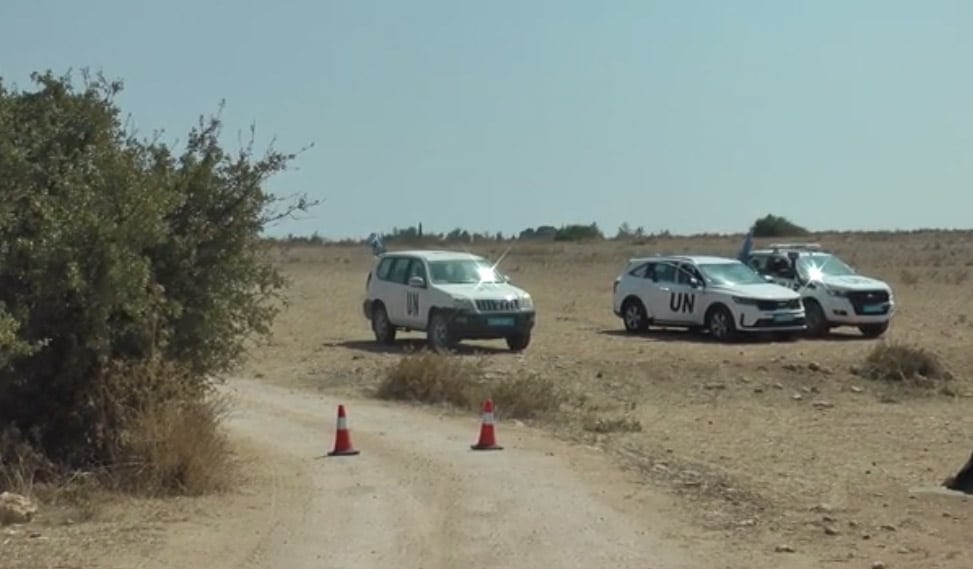The government, understandably, is pleased with the reaction to the Turkish attempts to carry out construction work in the buffer zone. Not only did Unficyp soldiers become involved in a scuffle with Turkish Cypriot police in order to stop the work, but the episode drew condemnatory statements from many countries. On Monday night the UN Security Council, issued a statement condemning the attack on members of Unficyp as well as the construction work in the buffer zone, which constituted a violation of the UN-controlled buffer zone.
This was a welcome response by the UN to the bullying tactics often employed by the Turkish side and the government felt that its diplomatic handling of the matter achieved the desired result. In a statement, the Cyprus foreign ministry said the UNSC statement “sends a strong message that such actions will not be accepted.” Experience has shown that this is not necessarily the case. The fenced area of Varosha was opened by Turkey despite the existence of UNSC resolutions about the return of the town’s inhabitants.
On Pyla, there was just a statement from the Security Council, which is why visiting US Senator, Robert Menendez told the conference of the Cypriot diaspora on Thursday that a resolution, denouncing the Turkish actions in the buffer zone, should be passed. But even if it were, would it change anything? It would be a small moral triumph of no practical import. All those so-called favourable UN resolutions, accumulated over the years, and greeted as big victories by governments, have proved practically worthless, although we still cite them.
The late Glafcos Clerides often pointed out the folly of seeing a UN resolution as an end in itself, which was the trend in ‘70s and ‘80s. We would still be told to solve the problem at negotiations with the other side, he would say. It took some years, but eventually the political establishment accepted that the pragmatic Clerides was right, and that a settlement would come from negotiations and not UN resolutions with carefully chosen words.
Although the UNSC statement earned the government praise, President Christodoulides must resist the temptation of deviating from his ultimate target – the resumption of talks – and embarking on a mindless blame game over Pyla. So far, the government has kept a low-key approach on the matter and avoided open confrontation, relying instead on diplomatic moves which paid off. But there are some signs it may now be resorting to the old zero-sum game on Pyla.
While the UN Special Representative, Colin Stewart is reportedly working on finding a mutually acceptable solution on Pyla, which would not affect the status quo of the buffer zone, official sources have been briefing journalists that the construction of the Arsos-Pyla road is out of the question. Such a road, official sources said, would give the occupation troops direct access to an advanced guard-post, whereas now they have to go through the British bases to reach it. More importantly, the official sources claim, is that the road would give occupation troops full access to Pyla and, subsequently, full control of the area. This betrays the complete lack of belief in a settlement, which would make these points meaningless.
As if to emphasise the point, government spokesman Constantinos Letymbiotis, while insisting the matter needed careful handling, said the government would not accept anything that puts in doubt the regime of the buffer zone. It is a rather emphatic statement, considering that Stewart was looking for a mutually acceptable solution. Has the government decided to play hardball, because the Turkish actions were condemned by the UNSC? Is it worth turning the Pyla dispute into a zero-sum game when the stated objective of Christodoulides is the resumption of talks? He will be meeting the UN Secretary-General in New York next month to discuss this possibility, but how convincing would he be if the two sides would be bickering over Pyla?
The Turkish side appears determined to go ahead with the road, although it has avoided any work in the buffer zone in the last week. Perhaps it is waiting for Stewart to come up with a solution, but how long will it wait before violating the buffer zone again and eliminating any possibility of a resumption of talks? This is why Christodoulides should weigh his options. Perhaps there could be deal – checkpoint being opened in Pyroi, as Athienou villagers have been demanding for years, in exchange for the Arsos-Pyla road being built, with certain conditions – to clear the way for the more important objective.
There could be other solutions to the dispute that Stewart is working on and Christodoulides should keep an open mind. How he handles Pyla, will have a bearing on how his stated commitment to the resumption of the talks will be viewed by the UNSG as well as the international community. Playing hardball will most definitely raise questions about this commitment about which he appears to have persuaded the outside world. Resolving the dispute would keep his credibility intact and allow him to pursue the resumption of talks. Without a settlement, disputes like Pyla will become more frequent and the UN may give up on trying to resolve them.







Click here to change your cookie preferences